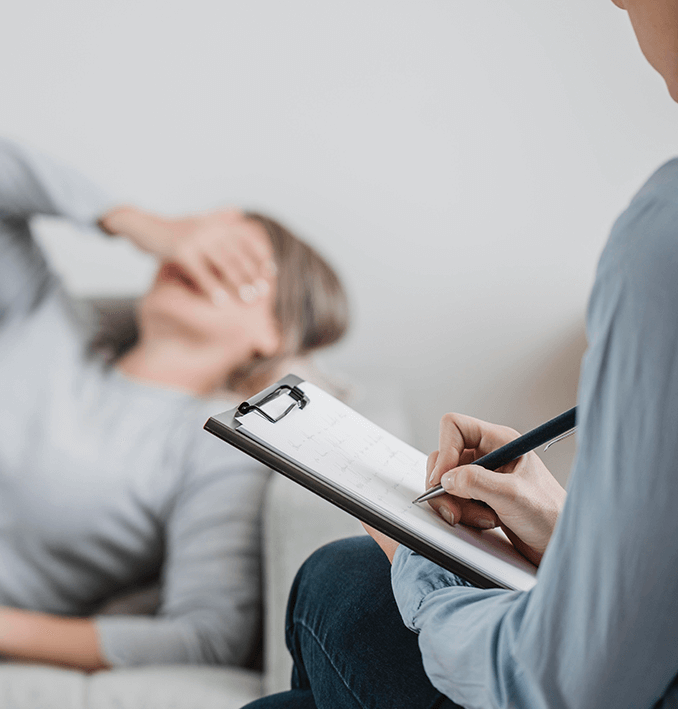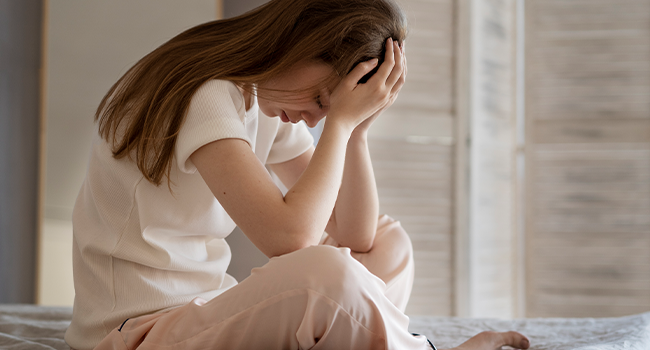OCD and anxiety disorders have many similar symptoms. While anxiety disorders and OCD are frequently comorbid and have symptoms that overlap, some key distinguishing factors exist between them that lead to diagnostic clarity. Differentiating between these characteristics can help guide treatment options and goals for both OCD and anxiety disorders.
Continue reading to know more about OCD vs. anxiety disorders and how they are related.
Get your OCD and anxiety assessment today!
What Are Anxiety Disorders?
Anxiety is a more advanced form of fear that we experience daily. Whereas anxiety disorders are a group of psychological conditions that are more than just apprehension or fear. Anxiety is constant and does not go away in people who have an anxiety disorder, and it can worsen over time. Symptoms of anxiety disorders can disrupt various areas of life, such as job performance, relationships, and schoolwork.
Anxiety disorders are classified into several types, including;
- Generalized anxiety disorder
- Panic disorder
- Social anxiety disorder
- Phobia-related disorders
- Post-Traumatic Stress Disorder (PTSD)
What Is OCD?
Obsessive-compulsive disorders (OCD) are a group of disorders characterized by repeated, uncomfortable feelings, ideas, or sensations known as obsessions. These obsessions cause the patient to feel compelled to do something repeatedly, which is known as a compulsion. Hand washing, checking on things, and cleaning are examples of repetitive behaviors that can significantly interfere with a person’s day-to-day activities and social relations. Many people who don’t have OCD have distressing thoughts or repetitive behaviors. However, these thoughts and behaviors don’t usually interfere with daily life. People with OCD have persistent thoughts, and their behavior patterns are rigid. Therefore, it is common for OCD patients to experience significant distress when they don’t perform the set behaviors or habits.
Generally, OCD has many types. The most common OCD types are the following
- Checking
- Contamination
- Symmetry and order
- Rumination and intrusive thoughts
- Hoarding
Seek professional help for your OCD and anxiety symptoms!
OCD VS. Anxiety Disorders: Symptoms
Anxiety Symptoms:
- Feeling agitated, tense, or restless.
- Feelings of upcoming danger, panic, or catastrophe.
- Having a faster heart rate.
- Fast or rapid breathing (also known as hyperventilation)
- Sweating more often.
- Shaking.
- Feeling tired or weak.
- Having difficulty focusing or thinking about anything else than the current worry.

OCD Symptoms:
- Uncontrollable thoughts, images, or urges. A person does not want to have these intrusive thoughts and feelings.
- Encounters significant discomfort, possibly involving fear, disgust, doubt, or a belief that things must be done a certain way.
- Spends a significant amount of time focusing on these obsessions and engaging in compulsions. Obsessions and compulsions interfere with personal, social, and professional activities.
Get professional assistance for OCD and anxiety disorders right now!
Is OCD The Same As Anxiety?
Previously, OCD was classified as a type of anxiety disorder. Later, in the 5th edition of the Diagnostic and Statistical Manual (DSM) of mental health disorders, obsessive-compulsive disorders were separated from anxiety disorders as a separate category.
Similarities: There are many similarities between these disorders that can cause them to appear similar:
- Recurrent cognitive intrusions
- Negative feelings
- It’s difficult to dismiss the intrusion.
- Instability of mental control
Differences: The underlying symptoms caused by obsessions and compulsions in OCD may appear similar to anxiety, but they are not. The primary distinctions between OCD and GAD are based on three criteria.
- Content of anxiety
- The bonding power of thoughts
- If compulsive behavior is present
OCD and Anxiety Treatment
Cognitive behavior therapy can be used to treat both OCD and anxiety. CBT is an integration of various evidence-based treatments that are based on the idea that a person’s thoughts influence how they behave and feel, at least in part. GAD and other anxiety disorders are typically treated with CBT and medication. Exposure and response prevention therapy, or ERP, also a form of CBT, is the standard treatment for OCD. Medication can also be used to treat severe cases of OCD.
OCD VS. Anxiety Disorders: FAQs
Anxiety can sometimes be mistaken for OCD. OCD symptoms such as restlessness and unwanted and physical tension appear to be anxiety symptoms. Anxiety disorders, on the other hand, do not involve compulsive behaviors.
OCD is no longer classified as an anxiety disorder. It is, however, a more advanced form of anxiety disorder that includes not only anxious thoughts but also compulsive behaviors.
Yes! Anxiety and OCD are comorbid conditions. It is possible to have both at a time.
OCD is a complex condition. It is a medical, neurological condition in which genetic inheritance plays a significant role. OCD was separated from anxiety disorders due to several differences, such as compulsive acts.
Wrap-up
OCD and anxiety disorders can have a significant impact on your daily life. If you seriously doubt that you have one, don’t feel hesitant to seek treatment. Make an appointment at Medvidi today to get the assistance you require to reclaim your health and well-being.














